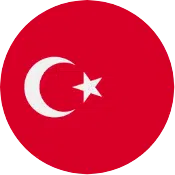
Adjectives in French: 20 You Should Know
Adjectives are the colourful brushstrokes that add depth and flavour to your language canvas. In the world of French language learning, adjectives are a fundamental aspect that brings life and vividness to your speech and writing. In this blog post, we will find out the 20 commonly used adjectives in French. A guide to understand their usage, and provide plenty of examples to help you master this essential part of the French language.
What Are Adjectives?
Adjectives are words used to describe or modify nouns. In French, they agree in gender (masculine or feminine) and number (singular or plural) with the nouns they modify. This means that the form of the adjective changes based on the gender and number of the noun it accompanies.
Gender Agreement
In French, adjectives are adjusted for gender. For example:
- Masculine adjectives typically end in -eux, -er, -en, -et, or a consonant. Example: un homme intelligent (an intelligent man).
- Feminine adjectives often end in -euse, -ère, -enne, or -ète. Example: une femme intelligente (an intelligent woman).
Number Agreement
Adjectives are also adjusted for number. For example:
- Singular adjectives refer to one thing. Example: un chien mignon (a cute dog).
- Plural adjectives refer to more than one thing. Example: des chiens mignons (cute dogs).
Sign up for our offers
Exclusive discounts on your course with Cactus directly on your inbox!
Examples of French Adjectives
Colours:
- Masculine: un pull bleu (a blue sweater)
- Feminine: une robe rouge (a red dress)
Sizes:
- Masculine: un petit chat (a small cat)
- Feminine: une grande maison (a big house)
Nationalities:
- Masculine: un artiste espagnol (a Spanish artist)
- Feminine: une chanteuse italienne (an Italian singer)
Emotions:
- Masculine: un homme heureux (a happy man)
- Feminine: une femme triste (a sad woman)
Shapes:
- Masculine: un cercle parfait (a perfect circle)
- Feminine: une étoile brillante (a shining star)
Quantities:
- Masculine: un verre vide (an empty glass)
- Feminine: une bouteille pleine (a full bottle)
Age:
- Masculine: un enfant curieux (a curious child)
- Feminine: une grand-mère adorable (an adorable grandmother)
Material:
- Masculine: un mur de pierre (a stone wall)
- Feminine: une table en bois (a wooden table)
Placement of Adjectives
In French, adjectives usually come after the noun, unlike in English where they typically come before the noun. This word order adds a touch of elegance and complexity to the French language. For example:
- Une robe rouge (a red dress)
- Un homme intelligent (an intelligent man)
Adjectives in French & Next Steps to Learn French
Adjectives are essential tools for expressing your thoughts, emotions, and descriptions in a more nuanced and vivid manner. It’s import to learn how to use adjectives correctly. Consider gender and number agreement, is a vital part of mastering the French language. The examples provided in this article should give you a good starting point. Start incorporating adjectives into your French conversations and writing. Embrace the beauty of the French language and paint your linguistic canvas with vibrant and descriptive adjectives! Bonne chance! (Good luck!)

 French
French German
German Italian
Italian Spanish
Spanish Arabic
Arabic Cantonese
Cantonese Czech
Czech Croatian
Croatian Danish
Danish Dutch
Dutch English
English Greek
Greek Hebrew
Hebrew Hindi
Hindi Japanese
Japanese Korean
Korean Norwegian
Norwegian Polish
Polish Portuguese
Portuguese Russian
Russian Swedish
Swedish Thai
Thai Turkish
Turkish Ukrainian
Ukrainian